Russia Destroys Major Ukrainian Power Plant In Missile Strike, Power Shortages Expected
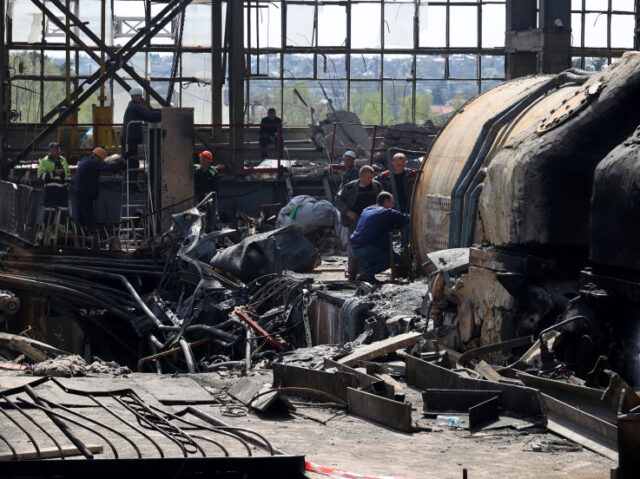 Getty Images
Getty Images
Russia appears to be stepping up its campaign to deprive Ukraine of electricity, launching a series of major missile and drone attacks on critical infrastructure this week, totally destroying a large power plant.
The Trypilska coal and gas power plant was “completely destroyed” in a missile attack overnight into Thursday, Ukrainian state media says. According to those repots, it was one of the “most powerful” plants in the Kyiv region and the whole facility from turbines, transformers, to generators were hit in the strike.
A second power plant in Sumy was also hit in an airstrike.
The national energy board warned power outages were likely to result, and particularly in the region of Kharkiv city where the situation is compounded by further Russian airstrike damage to local substations, making power transmission difficult. “Substations and power generating facilities” have been damaged in recent days in “Odesa, Kharkiv, Zaporizhzhia, Lviv and Kyiv”, the government said.
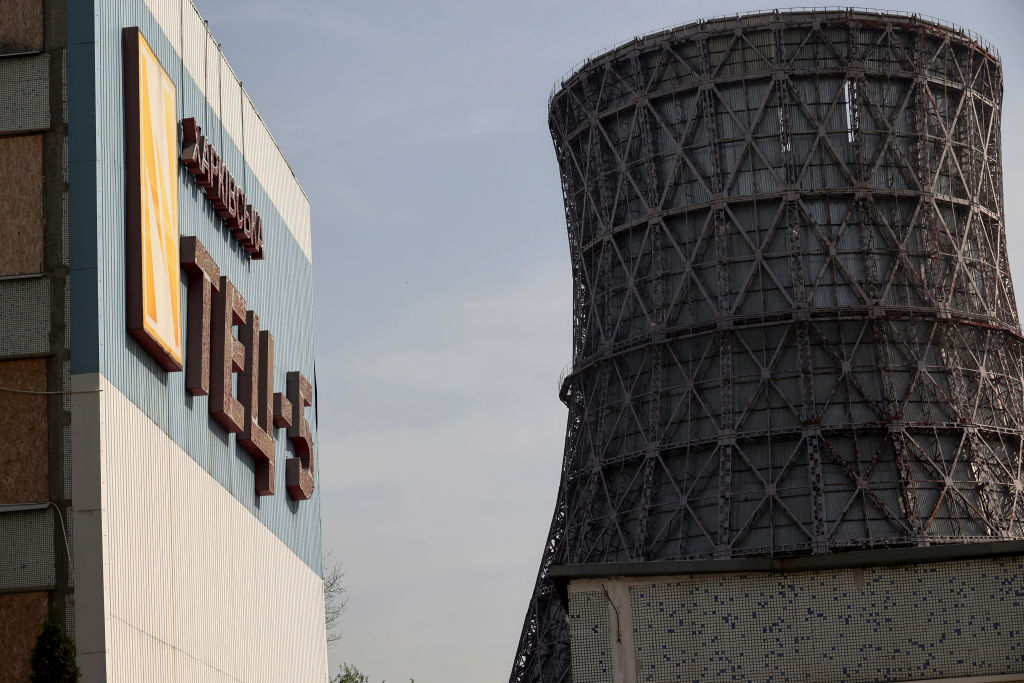
KHARKIV REGION, UKRAINE – APRIL 11, 2024 – The Kharkiv Combined Heat and Power Plant (CHP) is damaged by Russian shelling, Kharkiv Region, northeastern Ukraine. (Photo credit should read Vyacheslav Madiyevskyy / Ukrinform/Future Publishing via Getty Images)
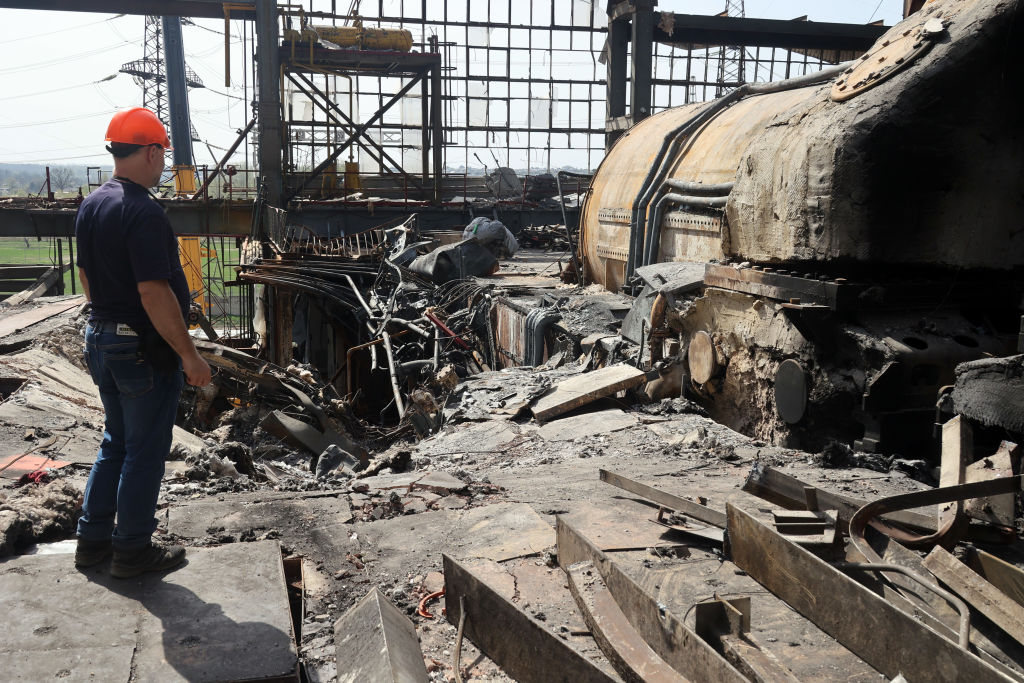
KHARKIV REGION, UKRAINE – APRIL 11, 2024 – A worker is seen at the Kharkiv Combined Heat and Power Plant (CHP) damaged by Russian shelling, Kharkiv Region, northeastern Ukraine. (Photo credit should read Vyacheslav Madiyevskyy / Ukrinform/Future Publishing via Getty Images)
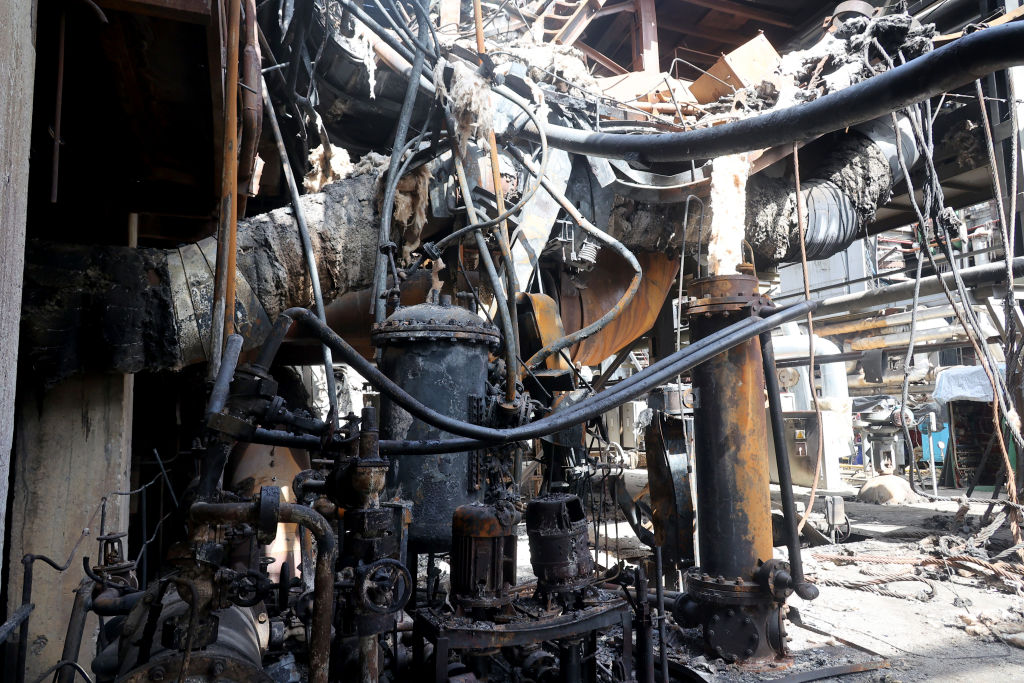
KHARKIV REGION, UKRAINE – APRIL 11, 2024 – The Kharkiv Combined Heat and Power Plant (CHP) is damaged by Russian shelling, Kharkiv Region, northeastern Ukraine. (Photo credit should read Vyacheslav Madiyevskyy / Ukrinform/Future Publishing via Getty Images)
While solar fields generate power during the day, they of course do not work in the dark and the traditional power plants are needed to take up the slack. Consquently, power outages are possible in the evenings, when demand is highest and supply now lowest.
Ukraine claims the Trypilska power station attack was the work of a so-far little seen new Russian missile, the “X-69 cruise missile”, which they claim has a range of 400 kilometres (250 miles) and which can fly skimming over ground level at an altitude of 20 meters (65 feet), making it hard to track and take down. Per the BBC, the attack overnight into Thursday was a wave of 80 missiles and drones.
This morning, Ukraine said it had shot down 16 of 17 Iranian designed Shahed attack drones in a further wave of attacks overnight into Friday, but that the wreckage of one fell on “critical infrastructure” and started a fire. Ukraine again called for its Western underwriters to support more air defence missiles this morning, citing the attacks of the previous days as demonstration of need.
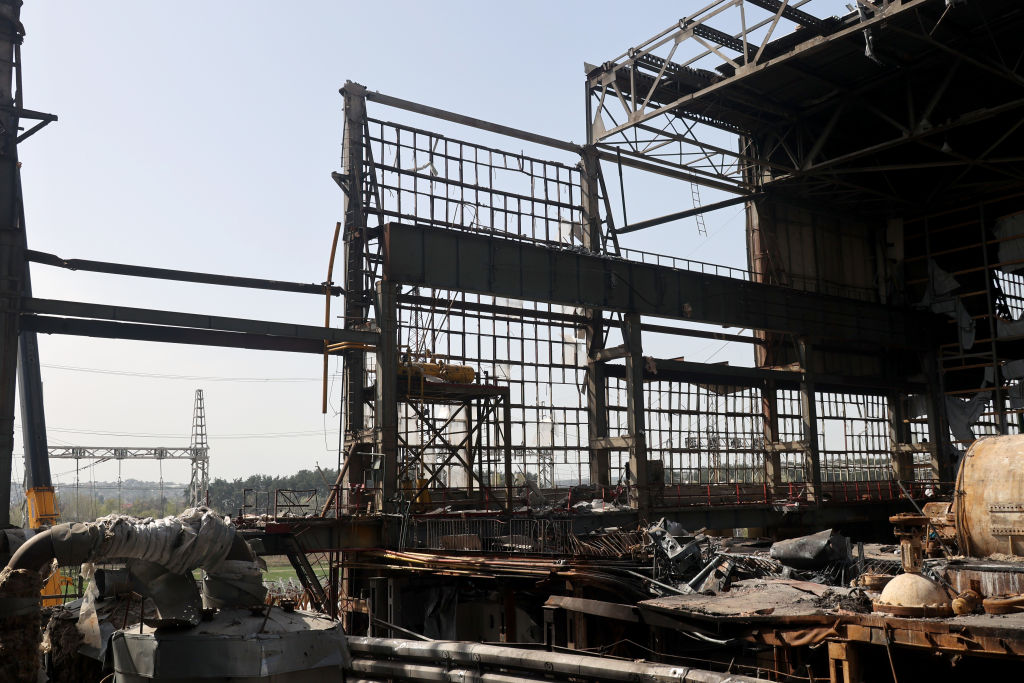
KHARKIV REGION, UKRAINE – APRIL 11, 2024 – The Kharkiv Combined Heat and Power Plant (CHP) is damaged by Russian shelling, Kharkiv Region, northeastern Ukraine. (Photo credit should read Vyacheslav Madiyevskyy / Ukrinform/Future Publishing via Getty Images)
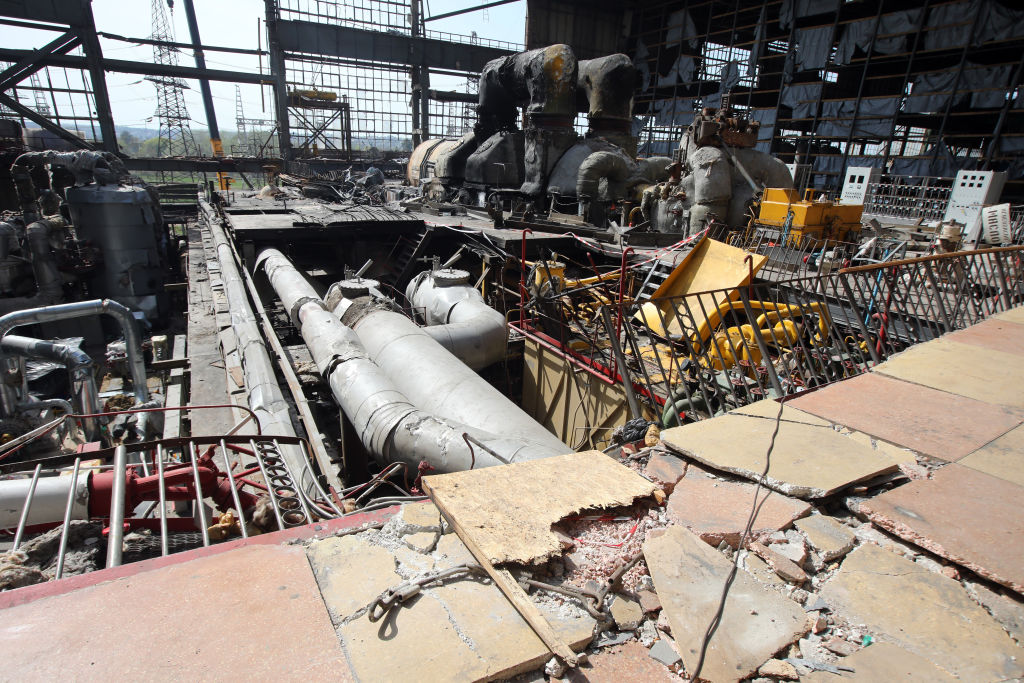
KHARKIV REGION, UKRAINE – APRIL 11, 2024 – The Kharkiv Combined Heat and Power Plant (CHP) is damaged by Russian shelling, Kharkiv Region, northeastern Ukraine. (Photo credit should read Vyacheslav Madiyevskyy / Ukrinform/Future Publishing via Getty Images)
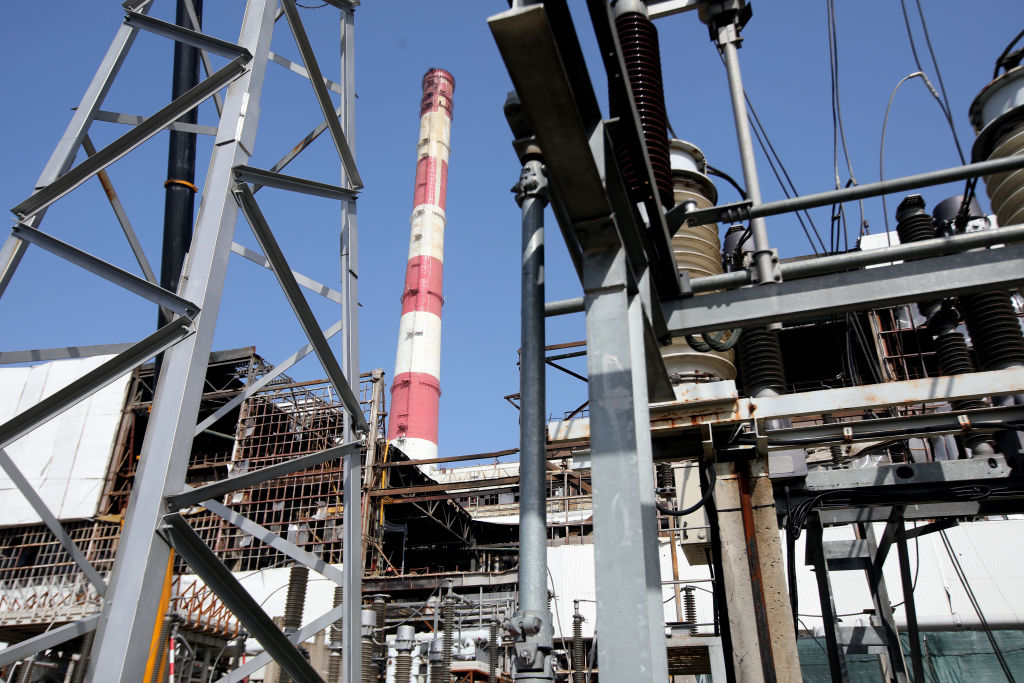
KHARKIV REGION, UKRAINE – APRIL 11, 2024 – The Kharkiv Combined Heat and Power Plant (CHP) is damaged by Russian shelling, Kharkiv Region, northeastern Ukraine. (Photo credit should read Vyacheslav Madiyevskyy / Ukrinform/Future Publishing via Getty Images)
Ukraine Makes Deepest Strikes Inside Russia Yet, Hitting Factory and Oil Refinery 800 Miles From Front Linehttps://t.co/oBZPuYuBWN
— Breitbart London (@BreitbartLondon) April 2, 2024
Air Force Spokesman Ilya Yevlash told Ukrainian state television: “We cannot replenish our stockpiles on our own, we cannot manufacture these missiles on our own. That is why our partners are aware of our need, they know how many missiles we have and how many more we need.”
Russia, for its part, said the strikes were a retaliation for a series of recent attacks by Ukrainian drones against Russian energy infrastructure. As previously reported, long range Ukrainian drones made record-length strikes into Russia earlier this month, hitting an oil refinery. The Kremlin claimed through their state media: “In retaliation to the Kiev regime’s attempts to inflict damage on Russia’s oil and gas industry and energy sites, the Russian Armed Forces delivered a massive strike last night by air-launched and seaborne long-range precision weapons and unmanned aerial vehicles against Ukrainian fuel and energy facilities.”
They further asserted that “The goal of the strike were achieved. All the targets were destroyed.”
Russia also says it is under continuing attack by Ukrainian drones — a normal situation in the Ukraine drone war, in which both sides daily strike the other — stating it has brought down “dozens” of drones with electric warfare, but that two people were injured in the sometimes-contested city of Belgorod this week.
While drone and missile strikes on power plants and oil facilities is a subject of worry in both Kyiv and Moscow, the fragility of one of Europe's largest nuclear power plants, the Zaporizhzhia facility which is presently Russian-occupied, is an object of broader concern. Ukrainian drone strikes hit Zaporizhzhia last week, Russia claimed, prompting the United Nations' nuclear energy watchdog to issue a condemnation and warning, saying just fighting “significantly” increases the risk of a nuclear incident.
Worrying https://t.co/lMAh0reU4h
— Breitbart News (@BreitbartNews) April 9, 2024
Source link

